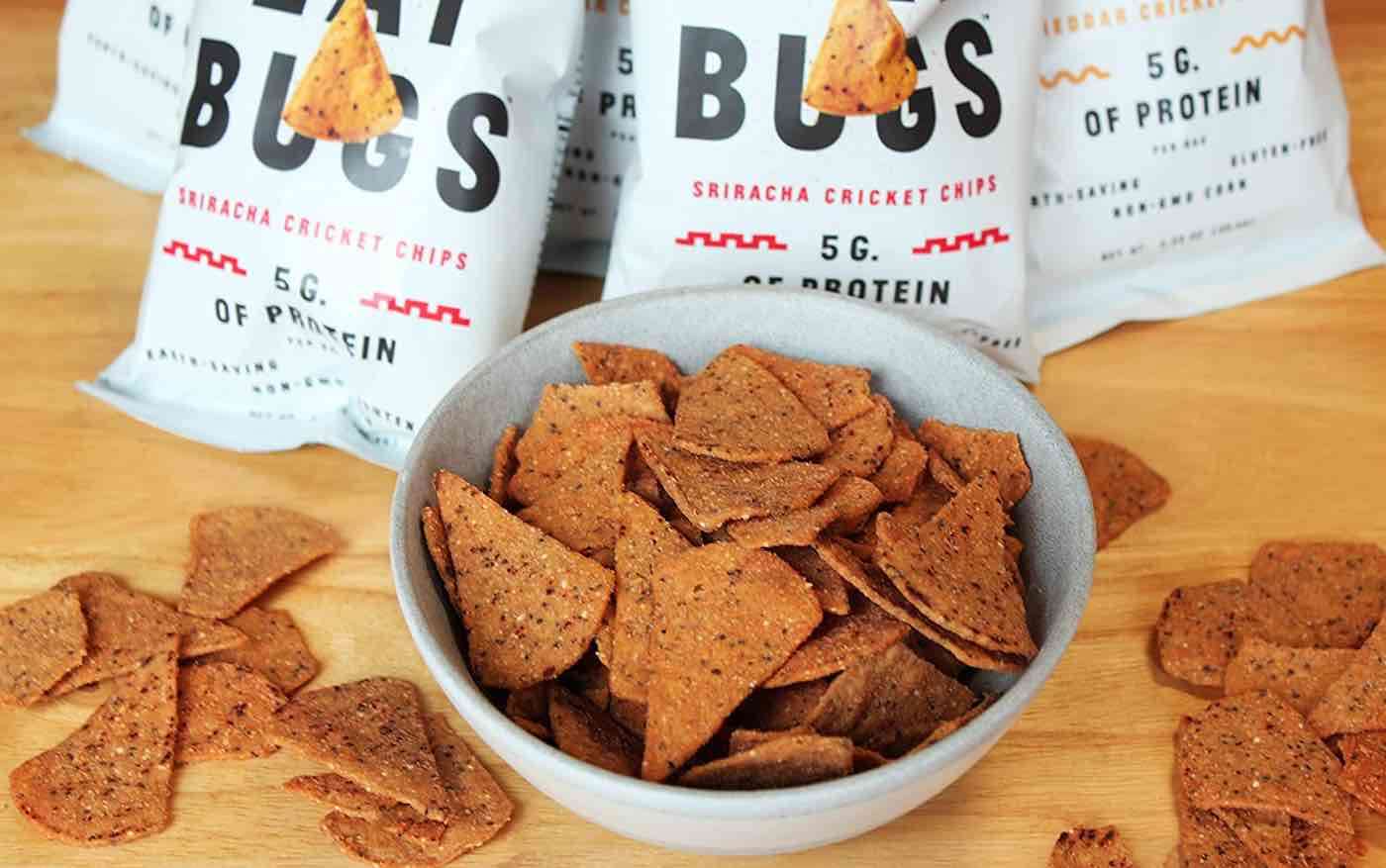Inflatable Floodgates in Venice Named After Moses Save the City for a Second Time
Now used twice in a month, the MOSE flood defense system in Venice protects the historic city from flooding of up to 10 feet.

As famed adventure television host, world record holder, former British Special Forces operator, and all around feel-good motivational guy Bear Grylls repeatedly reminded us on his television programs Man vs Wild and Running Wild, insects have more protein than beef or fish—sometimes as much as 8x more, if measured pound for pound.
After a long television career of pounding back worms, grubs, spiders, crickets, and ants for our amusement, Grylls would certainly be applauding the new proposed European Union legislation that would allow for mealworms, lesser mealworms, crickets, and locusts to be sold as "novel food sources," pumping life into an industry that, while small, produces 500 tons of food annually according to The Guardian.
The products include things like cricket protein bars, locust aperitif, or mealworm burgers, and the new regulations from the European Food Safety Authority are likely to open the floodgates for insect food to flow from countries where they are made like Holland, the UK, Denmark, Belgium, and Finland, into countries where they are banned, such as Italy, France, and Spain.
"We reckon these authorizations will be a breakthrough for the sector," Christophe Derrien, secretary general of the International Platform of Insects for Food and Feed, added.
Companies in the Netherlands, France, Switzerland and Spain are all preparing to ramp up operations to prepare for the demand, perceiving through market signals that people actually want insect food.
Unlike factory farming, insects can be raised humanely in cities, without antibiotics or growth hormones. Chirps Chips, for instance, uses crickets milled into a flour to make high-protein tortilla chips – and they're delicious, with three times more protein and 40% less fat than a regular chip.
And, now the snack is backed by Mark Cuban after the company's young CEO, Rose Wang, won a deal on "Shark Tank"—with the snack being sold on thousands of store shelves across the nation in flavors like BBQ and cheddar.
Insects have been part of the staple diet of many world cultures, even now in modern times. They represent a rich source of animal protein that is practically immune to extinction, and just like traditionally harvested animals are perfectly safe to eat if you can control the conditions in which they live.
After a long television career of pounding back worms, grubs, spiders, crickets, and ants for our amusement, Grylls would certainly be applauding the new proposed European Union legislation that would allow for mealworms, lesser mealworms, crickets, and locusts to be sold as "novel food sources," pumping life into an industry that, while small, produces 500 tons of food annually according to The Guardian.
The products include things like cricket protein bars, locust aperitif, or mealworm burgers, and the new regulations from the European Food Safety Authority are likely to open the floodgates for insect food to flow from countries where they are made like Holland, the UK, Denmark, Belgium, and Finland, into countries where they are banned, such as Italy, France, and Spain.
"We reckon these authorizations will be a breakthrough for the sector," Christophe Derrien, secretary general of the International Platform of Insects for Food and Feed, added.
Companies in the Netherlands, France, Switzerland and Spain are all preparing to ramp up operations to prepare for the demand, perceiving through market signals that people actually want insect food.
Unlike factory farming, insects can be raised humanely in cities, without antibiotics or growth hormones. Chirps Chips, for instance, uses crickets milled into a flour to make high-protein tortilla chips – and they're delicious, with three times more protein and 40% less fat than a regular chip.
And, now the snack is backed by Mark Cuban after the company's young CEO, Rose Wang, won a deal on "Shark Tank"—with the snack being sold on thousands of store shelves across the nation in flavors like BBQ and cheddar.
Insects have been part of the staple diet of many world cultures, even now in modern times. They represent a rich source of animal protein that is practically immune to extinction, and just like traditionally harvested animals are perfectly safe to eat if you can control the conditions in which they live.
With some of the most basic brain functions of anything in kingdom Animalia, insects are also less-likely to offend the sensibilities of vegetarians who, being more likely to be vitamin B12 deficient than omnivores, might be able to utilize the occasional cricket bar as a means of supplementing their plant based diet with bioavailable and dietary sources of B12 which can't be made by plants, coming only from bacteria which live on plants.
Furthermore, unlike hoofed mammals, the process of enteric fermentation which, using the United States as an example, accounts for a small percentage of total greenhouse gas emissions (about 2.5% in the U.S.) is absent in insect agriculture, and so there's a small potential reduction in GHG emissions to be gained from a switch.
Lastly trillions of insects are killed every year both by combine-harvesters and pesticides to protect major crops like wheat, rice, soya, corn, and cotton, representing millions of tons of lost nutrients. And, in a world where many communities are protein-deficient, insect products might never be more needed.
Multiply The Good By Sharing The Exciting News With Your Friends On Social Media — Photo by Chirps Chips
Be the first to comment